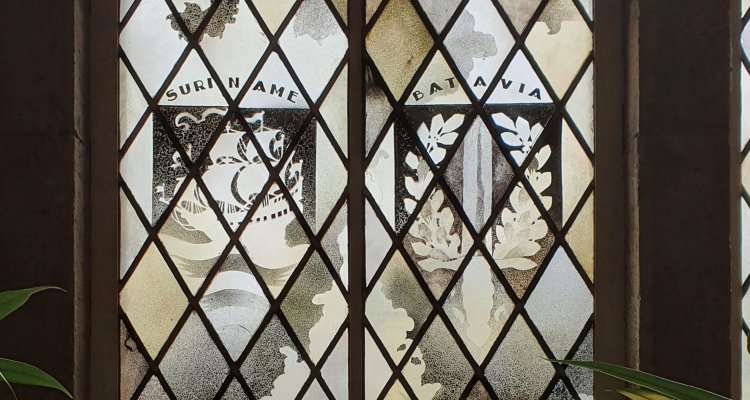
Project
The Colonial History of Wageningen University
This research project analyses why and how Wageningen University and Research became entangled with the Dutch colonial empire and its production of agricultural knowledge. It does so both in terms of research and education and given the cultural, economic, political and social contexts of the late 19th and 20th centuries, including the postcolonial period. It aims to answer that question by focusing on a set of specific sites within the global history of Wageningen University, Medan, Pasuruan, Bogor, Wageningen (SU), Wageningen (NL) and Paramaribo.
Present-day Indonesia and Suriname were once the principal colonial territories of the Netherlands. Throughout the 19th and much of the 20th century, their economies largely depended on tropical agriculture. This research project aims to provide insights into the role Wageningen University played in this colonial context, both in the Netherlands and in modern Indonesia and Suriname.
The project was launched in 2022 at the behest of the university's board. WUR is aligning itself with a broader trend in Dutch society to clarify how Dutch institutions and companies have benefited from and contributed to colonial oppression. In 2022, WUR became the first university to initiate such a study.
The Netherlands Indies (today Indonesia) and Dutch Guyana (today Suriname) were the two principal colonial territories of the Netherlands during most of the 19th and a major part of the 20th century. Tropical agriculture constituted the economic backbone of both colonial polities. The core objective of this research project is to deepen our understanding of and to raise awareness about the colonial entanglements and legacies of Wageningen University, both in the Netherlands as well as in modern Indonesia and Suriname.
Almost from the beginning, Wageningen Agricultural College played an important role in training young men (hardly any women) for a colonial life in the tropics, mostly in the Dutch East Indies. When the school became an agricultural college in 1918, Wageningen increasingly started to contribute to research on tropical crops such as sugar cane and tobacco. That meant attracting men who had ample experience working across the Indonesian archipelago to teach at the school as professors in tropical plant cultivation and plant virology, among others. One of the key features of this colonial knowledge production was that it functioned to support colonial rule – by increasing yields for the purpose of profit or, alternatively, by contributing to food security for the native population.
After decolonisation this changed and as a result this knowledge needed to find different outlets. From the 1950s onwards, Wageningen experts and graduates now became agricultural development experts as ‘technical’ assistance seemed like a great new form of diplomacy. Wageningen’s activities therefore expanded as its graduates learned to apply their knowledge beyond the Dutch East Indies. Yet, post-war agricultural development science had colonial roots and functioned as a way to keep former colonial ties between north and south strong. One example of that continuity is how Wageningers were involved in setting up an emergency university in Jakarta, erstwhile Batavia, the agricultural faculty of which would later become the Indonesian Agricultural University. Many of its professors had been trained at the Wageningen college.
This research project analyses why and how Wageningen University and Research, founded in 1876, became entangled with the Dutch colonial empire and its production of agricultural knowledge, both in terms of research and education and given the cultural, economic, political and social contexts of the late 19th and 20th centuries, including the postcolonial period. It aims to answer that question by focusing on a set of specific sites within the global history of Wageningen University, including Bogor in Indonesia and Paramaribo in Suriname, amongst others. These sites each contributed to the creation of Wageningen University as it is known today. The project approaches colonial and postcolonial knowledge production and the adjacent colonial and postcolonial university by prodding into the motivations driving research and education, the colonial and postcolonial power structures underwriting them and the movements between these sites where specifically colonial agricultural research was carried out and between which intra-imperial knowledge transfers took place. In that way this research aims to contribute to ongoing historiographical debates in new imperial history as well as decolonial debates on the critical history of knowledge.
Results
The research has shown that Wageningen University was deeply enmeshed in the Dutch colonial project and functioned as a pillar of the Dutch colonial state. In the late 1920s around 65-70% of its students followed study programmes in colonial agriculture or colonial forestry, some of these students were Indonesian or Surinamese. Before coming to the school, many of its professors had impressive colonial careers. Discussion on the purpose of colonial agricultural study, particularly the question whether it should support commercial agriculture or food security for local people in the colonies was an everyday part of university life at the time
Publications
First publications expected late 2024, book expected in late 2025-early 2026.